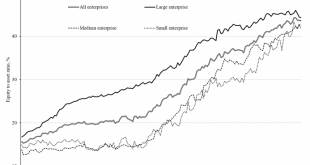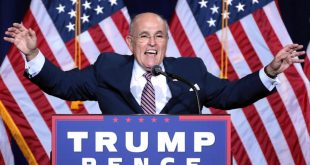Ryan McMaken and Tho Bishop discuss five reasons why Rothbard’s work is so memorable. From his fearlessness in the face of opposition, to his commitment to peace and decency, Rothbard provides us with a model of principled scholarship. Additional Resources “Nations by Consent”: Mises.org/RR_54_02 Egalitarianism as a Revolt Against Nature, and Other Essays: Mises.org/RR_54_03 “A Strategy for the Right”: Mises.org/RR_54_04 A History of Money and Banking in the...
Read More »Public Schools Refuse to Open. Give the Taxpayers Their Money Back
In many school districts across the nation, public school teachers still don’t want to go back to work. Private sector workers have long been hard at work in kitchens, at construction sites, and in hardware and grocery stores. Meanwhile, from Seattle, to Los Angeles, and to Berkeley, California, Teachers’ Union representatives insist they simply can’t be expected to perform the on-site work in the expensive facilities that the taxpayers have long been paying for....
Read More »Stagflation Cometh
A gentleman who does work for us sent me a text recently saying the price of his supplies has increased 20 percent, so he wants to increase his monthly fee 10 percent. It was a nice way to ask, and I said sure, especially given that he’s willing to take a haircut on his labor to make the increase more palatable. Chairman Jerome Powell would be happy to hear this story, as the Federal Reserve prints mightily to push the CPI (Consumer Price Index) to 2 percent and...
Read More »Murray Rothbard on War and “Isolationism”
[These edited extracts, from an interview in the February 1973 issue of Reason magazine, first ran in the June 1999 issue of the Rothbard-Rockwell Report.] Q: Why, in your view, is isolationism an essential tenet of libertarian foreign policy? A: The libertarian position, generally, is to minimize state power as much as possible, down to zero, and isolationism is the full expression in foreign affairs of the domestic objective of whittling down state power. In other...
Read More »Japan’s Well-Fed Zombie Corporations
The corona crisis has intensified the discussion about the zombification of the economy; enterprises have become more dependent on government bailouts, loans, subsidies, short-time working benefits, and loans from central banks. Governments around the world claim the measures to be only temporary. Yet Japan’s experience suggests that the reliance of enterprises on public support can continue in one form or another. Japan’s enterprises have long relied on the state...
Read More »The PRO Act Is Not Just a Union Handout—It’s an Assault on the Freedom of Association Itself
On February 4, 2021, Democrats in the House and Senate introduced the Protecting the Right to Organize (PRO) Act. Like many names in Washington, this one is an Orwellian misnomer that does the exact opposite of what it claims to be doing. If passed, the bill, which is basically a union wish list, would radically transform the nature of the labor market in the US with numerous sweeping and heavy-handed changes. Andy Levin (MI-09), a sponsor of the bill, doesn’t bother...
Read More »Bulls, Bears, and Beyond: In Depth with James Grant
James Grant is editor of Grant’s Interest Rate Observer, which he founded in 1983. He is the author of nine books, including Money of the Mind, The Trouble with Prosperity, John Adams: Party of One, The Forgotten Depression, and more recently Bagehot: The Life and Times of the Greatest Victorian. In 2015 Grant received the prestigious Gerald Loeb Lifetime Achievement Award for excellence in business journalism. James Grant is an associated scholar of the Mises...
Read More »Want More Entrepreneurship? Embrace Long-Term Legal Stability.
Prudent economic calculation becomes more difficult as legal and regulatory regimes are subject to frequent changes and political upheaval. Original Article: Continuous change in the regulatory framework in which market players do business is a feature of modernity: while the perimeter of the state’s intrusiveness gets larger, rules expand and change constantly. On the other hand, every investment calls for a certain amount of calculation,1 given that business as...
Read More »The Greatest Thing the Roman Empire Ever Did Was Go Away
Review of Walter Scheidel, Escape from Rome: The Failure of Empire and the Road to Prosperity (Princeton, NJ: Princeton University Press, 2019) The Roman Empire is often presented as the fabric of Western civilization. The languages, laws, religion, mores, and implements of the Western political imaginary come in large part, in one way or another, from Rome. The Roman Empire has been rebooted time and again by invaders and latecomers, from the Ostrogoths to...
Read More »Why Dominion’s Defamation Lawsuits Are Garbage
Dominion Voting Systems is suing MyPillow CEO Mike Lindell for $1.3 billion. This comes in the wake of other Dominion lawsuits against Trump advisors Rudy Giuliani and Sidney Powell. All are accused of lying about Dominion’s supposed complicity in using the company’s vote-counting software to favor presidential candidate Joe Biden in the 2020 presidential election. The company claims Lindell’s accusations “have caused irreparable harm to Dominion’s good reputation...
Read More » Swiss Economicblogs.org
Swiss Economicblogs.org










